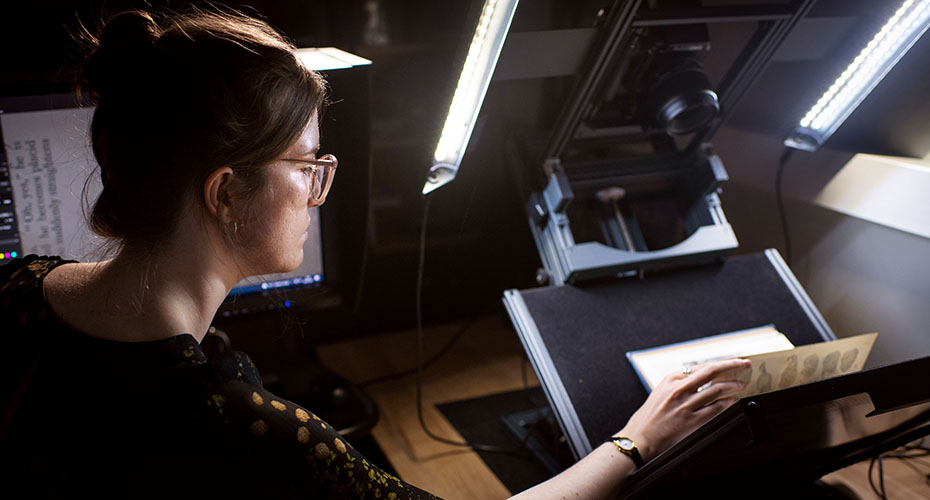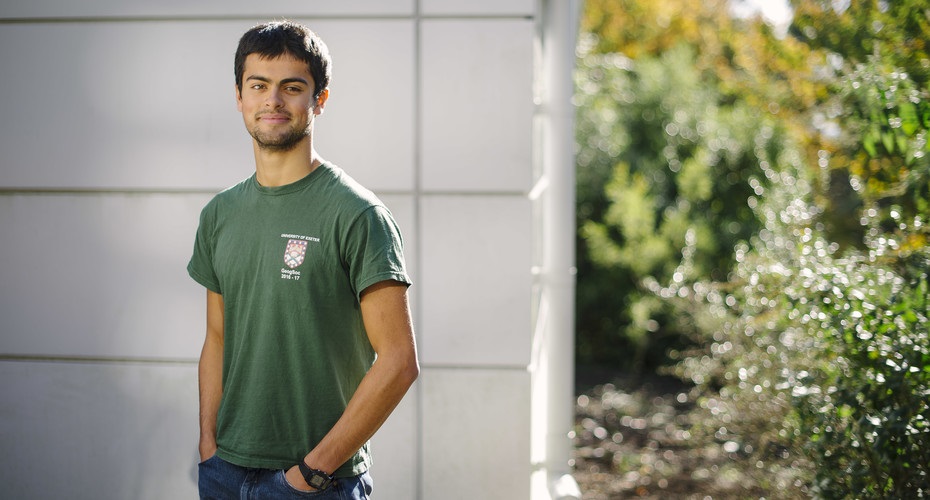| Degrees |
|
|---|---|
| Duration |
| Start date | September and January |
|---|---|
| Location | Streatham Campus |
| Study modes | Full time and part time |
Overview
- Become an expert in a particular area whilst studying in a rich, multidisciplinary environment.
- Benefit from excellent facilities, including access to UoE’s Digital Humanities Lab, the Bill Douglas Cinema Museum, computer labs and podcast studios.
- Take part in research seminar series, and lectures by visiting speakers.
- Explore issues and develop skills that are central to everyday life in the 21st century including how to communicate clearly and effectively to specific audiences using specific technologies.
- Our experts can offer supervision in a wide variety of topics (see research overview below)
Contact
Web: Enquire online
Phone: 0300 555 6060 (UK)
+44 (0)1392 723044 (non-UK)
![]()
Top 15 in the UK for Communication and Media Studies
14th in The Times and The Sunday Times Good University Guide 2024
![]()
Unique on site resources: Exeter’s Special Collections archive and the Bill Douglas Cinema Museum
![]()
Develop transferable skills, specialist knowledge and research skills through interdisciplinary teaching
![]()
Varied graduate careers
Research overview
Digital communications technologies and social media platforms are central to our everyday reality in the 21st century, and we live in a world saturated by media content. Studying for a Media and Communications PhD at Exeter will allow you to develop deep specialist knowledge in an area of your choice. You will develop skills in key research methodologies and gain theoretical knowledge in your quest to be a productive scholar and critical citizen.
The research expertise of the academic staff not only spans a wide variety of subjects and methodological traditions across the broad field of Media and Communications but are based within the vibrant interdisciplinary environment of the Department of Communications, Drama and Film which shares expertise, research events, and resources across disciplines.
Our experts can offer supervision in a wide variety of topics, including but not limited to:
- Advertising and branding
- Algorithmic cultures
- Celebrity studies
- Communications and the climate crisis
- Communications and the environment
- Communications infrastructure
- Community and grassroots media
- Digital activism
- Gender and the media
- Global communications
- Media and creative industries
- Media and cultural theory
- Media and democracy
- Media and migration
- Media and nations
- Media and politics
- Media and social class
- Media and social movements
- Media and sport
- Media archeology
- Media audiences
- Media ethics
- Media history
- Media industries
- Media policy
- Nostalgia and cultural memory
- Popular culture
- Slow computing
- Social media
- The internet
- Video games
How to apply
Students applying to enter directly into the MPhil/PhD programme would normally be expected to have a Masters degree with Merit or equivalent in a related subject, or other relevant qualifications such as a doctorate in another subject.
Requirements for international students
If you are an international student, please visit our international equivalency pages to enable you to see if your existing academic qualifications meet our entry requirements.
English language requirements
International students need to show they have the required level of English language to study this course. The required test scores for this course fall under Profile E: view the required test scores and equivalencies from your country.
PhD and Research Programme application process
The information below applies to self-funded PhD, MPhil and Masters by Research applicants, but if you are applying for a funded PhD studentship, please follow the specific instructions related to that application.
- Pinpoint your PhD research area
- Investigate whether this area is available at Exeter
- Ensure that you meet our English language entry requirements (international students only)
- Construct and refine your PhD research proposal
- Approach your potential supervisor(s)
- Apply online
PhD studentships pages can be accessed in our Funding lists on Finance tabs under each research topic page, and are also available from the Postgraduate Research search results pages on this site, on the PhD projects tab.
Full details of the application process can be found on our Apply now webpage.
Fees and funding
Tuition fees per year 2024/25
- Home: £4,786 full-time; £pro-rata part-time
- International: £22,600 full-time
For those studying for more than one year, our fees are expected to increase modestly in line with Consumer Price Inflation measured in December each year. More information can be found on our Student Finance webpages.
Tuition fees per year 2023/24
- Home: £4,712 full-time; £pro-rata part-time
- International: £20,500 full-time
For those studying for more than one year, our fees are expected to increase modestly in line with Consumer Price Inflation measured in December each year. More information can be found on our Student Finance webpages.
Our Postgraduate Funding webpage provides links to further information. If you are considering a PhD in the future, in addition to University of Exeter funding, we have been successful at securing postgraduate funding for PhD research through our Funded centres.
Current available funding
Supervision
Supervisors - all research students have a primary and a secondary supervisor who provide regular, high-quality advice, support and direction in their academic endeavours. They will work closely with their supervisors to develop, investigate and write-up a project at the cutting edge of Media and Communications research.
Mentor - each student will also be assigned a mentor who will take on a pastoral role and mediate on any problems that arise during the period of study. Your mentor will keep in regular contact and will provide background stability and support.
Facilities

The College of Humanities has undergone a £3.2 million HEFCE-funded refurbishment in recent years, providing new state-of-the-art facilities for all subjects.
The Digital Humanities Lab is a state of the art facility offering unique spaces, equipment and training for staff and students in Media and Communications studies. A specialist team conducts and supports innovative Digital Humanities research and offers training and teaching. The Lab undertakes the digital preservation and display of historic material and artefacts using advanced technologies.
The Bill Douglas Cinema Museum for the History of Cinema and Popular Culture holds a wide-ranging collection of more than 70,000 film related artefacts. The collection is accessible for all postgraduates to use as a research and study resource. Housed in the University’s state-of-the-art study facility, the Research Commons, the diverse collection includes objects relating to the history of the moving image. These include optical toys, magic lantern slides, a Lumière cinematograph; film publicity such as posters from the Hollywood era to contemporary film; material on film stars such as Charlie Chaplin, Marilyn Monroe and Audrey Hepburn; and material on animation, particularly Disney films.
The university library also has significant holdings in the area of Media and Communications including books, journals and more than 10,000 hard copies of films and television programmes.
All postgraduates enjoy access to excellent computing facilities and common spaces where postgraduate students can meet and work together in reading and discussion groups.
Careers
Graduates from Media and Communications PhD programmes enter myriad careers, including but not limited to:
- University teaching and research
- University administration
- Communications management,
- Advertising and branding,
- Film
- Television
- Social media management
- Culture industries
- Third sector
- Marketing
- Public relations
- Reputation management
- Journalism
- Publishing
- International relations











